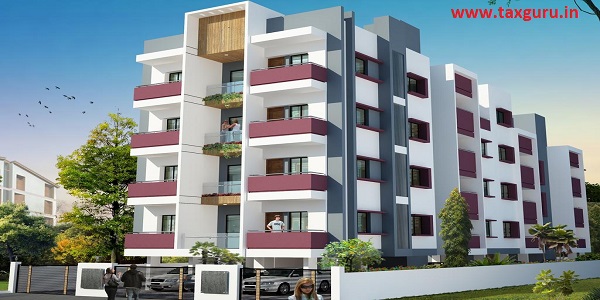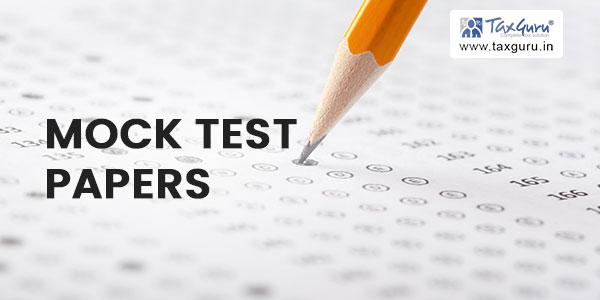This article is an attempt to educate on regulatory, accounting, direct and indirect tax compliance to be done by Resident Welfare Association (RWA)/Apartment Association. In Tamilnadu as per The Tamilnadu Apartment Ownership Act, 1994, a Deed of Apartment containing description of the land on which the building is located along with details of the building, apartment number and its location. Description of limited common areas and facilities need to be described in detail. A copy of the deed of apartment must be filed with the concerned competent authority. The Deed of Apartment shall be prepared and the same along with the Floor Plan of the building to be registered in the Register Books kept under section 51 of the Registration Act, 1908.

Section 12 of the Act specifies that as soon as the Deeds of Apartments are executed and registered as prescribed but not later than three months from the date of such registration, the apartment owners shall form a society either register under the Tamilnadu Co-operative Societies Act, 1983 or under the Tamilnadu Societies Registration Act, 1975.
It most of the cases, these associations are registered in Tamilnadu are under The Tamilnadu Societies Registration Act, 1975. Accordingly, these associations are subject the said act. Similar to private limited companies, these societies are required to submit audited financial statements every year on or before end of September for the previous year ended 31st March of last year before the Registrar of Societies.
Every society registered under Tamilnadu societies registration Act, 1975 shall keep proper books of accounts and at the expiration of each financial year, prepare a receipt and expenditure account and a balance-sheet and shall cause them to be audited by an auditor or by two or more members of the society.
Page Contents
A. Accounting and Auditing Requirements of Resident Welfare Association /Apartment Association/Society
Generally, an entity registered under Tamilnadu Societies Registration Act, 1975 has to maintain books of accounts in accrual basis as mentioned in the bye-laws. It means that income and expenditure should be accounted in the books on accrual basis as receivable even if not received, payable even if not paid.
Corpus Fund, being a huge amount of money available for major repair works is to be accounted on accrual basis upon formation of association, because, the entire building are enjoying the common maintenance benefits and hence even if there are unsold flats or unoccupied flats held by the promoter or builders, they have to settle the corpus fund as agreed. Hence, entire amount of corpus eligible to be received to be booked and uncollected corpus fund shall be shown as receivable from flat owners or builders as the case may be. These corpus fund has to be invested as per bye-laws and its application also to be as per the bye-laws.
Similarly, for the monthly maintenance, flat-wise ledger preferably to be maintained to identify non-payers in order to take actions.
Standard Operating Procedure
It is worth to have a standard operating procedure (SOP) in written form and circulated to the committee / concerned members so that everybody will be in the same mindset and work towards to achieve the same. This works well because in Apartment Association, there are good combination of people with positive and negative mindset. Nobody bothers about positive but negative people; they will find problem for every solution. Hence, it is better to keep it clear to everyone.
Cash Vouchers:
Every payment made by cash should be by way of cash vouchers and when the payment exceeds Rs.5000, the receiver signature to be received on Re.1 revenue stamp.
Standard Registers
In order to maintain uniformity and hand over previous year files to new committee certain standard templates could be used like fixed assets register (Template in the link), Flat wise Corpus fund Track , Maintenance Collection.
B. GST Compliance by Resident Welfare Association /Apartment Association/Society
Presently, when a resident welfare association has turnover/receipts less than INR 20 lakhs, it is not required to be registered under GST laws. Further, upon the crossing/ exceeding the said limit, when individual flat’s monthly maintenance does not exceed INR.7500, there is no need to register under GST, even if the aggregate amounts received are in crores. But if the monthly maintenance exceeds INR.7500 even then the total receipts up to INR 20 lakhs are exempted and thereafter GST to be collected from the residents.
Further, when a person owns more than one flat leading to monthly maintenance payments exceeds for all of his flats, then for the purpose of GST registration and exemption, individual flat’s monthly maintenance should be considered not on consolidation basis. It is also to be noted that the above said exemption is applicable only when common service to members alone and not for third parties. When any service provided to any third parties subject to INR 20 lakhs turnover limit, the Association is subject to GST payments.
C. Income-tax Compliance by Resident Welfare Association /Apartment Association/Society
Being a society or an entity, the Resident Welfare Association shall become a person defined under Income-tax Act, 1961 consequently, required to get a PAN as well as TAN. It is pertinent to note that these Resident Welfare Association are not subject to payment of income tax for the surplus arrived from the maintenance collection from the members following the “principle of mutuality”. But one must be cautious to know that when amount collected from third parties other than members of the association shall be subject to income-tax liability. In case of interest income received from corpus fund deposits as well as other deposits are not covered by the Principle of Mutuality concept hence, taxable. Needless to emphasis, the corpus fund received is not subject to income-tax.
The idea behind this exemption is that no man can make profit out of his own packet. The members of the association are for their welfare hence, the contribution towards the common maintenance are not a profit-making business it is nothing but spending for themselves hence no profit or income under the Income-tax law. Going by this, when receipt of money from any third party shall become income taxable.
The rate of income-tax payable shall be as applicable to Association of Person (AOP) under Income-tax Act, 1961, which means that it is similar to what is applicable to an Individuals that is no tax up to Rs.2,50,000. With respect to the deduction under Chapter VI-A, Section 80G – Donations and 80GGA – Donation for Rural Research and Development are allowed. There is no rebate u/s 87A allowed.
Every resident welfare association is required to file return of income when its taxable income exceeds maximum amount not chargeable to tax (INR2,50,000) but in order to follow uniform procedures, its advisable to file return of income every year irrespective of income as it would be useful when income-tax identifies and issues notice for a particular year under law.
Tax Deduction at Source:
Every Resident Welfare Association wherever required, to deduct tax at source (TDS) under Chapter XVII-B of the Income-tax Act, 1961, failing which the association shall be deemed as assessee in default in respect of such tax. The association is subject to penalty levied by the Assessing officer not more than the value of TDS ought to have been deducted at source.
D.Builders Point of View.
Though the association is formed and maintenance done by the Association, with respect to the unsold flats, the builder who owns it has to pay the monthly maintenance till the flat sold out. But under income-tax law (Sec 23), when the flat held by the builder as inventory in his books of accounts for more than 2 years after getting the completion certificate from competent authorities, then he has to offer the flat under notional rent basis for income-tax under Income-from House Property.
It means that the builder-owner has to pay income-tax under the head income from house property even if it is not let out until the property is sold. It is very pertinent to note that during the period in which notional income offered under section 23 of the Act, as the flat 30% deductions had been provided, the builder-owner may not be able to get business expenditure deduction for the maintenance paid during the said period.
When you look into the GST impact, the Builder-owner is not liable to GST when he sells his flat after getting completion Certificate but if he gets advance payment even negligible amount before the completion certificate, he is liable to register and pay GST.
I request any other views, issues, and comments from the readers.
The author is a Chennai based chartered accountant he can be reached at caselvaa@gmail.com





















It is still not clear whether interest from banks on Savings Bank accounts of RWAs is taxable
1. Renovation/Repair expenses on an existing boundary wall of the society can be accounted under the head “Fixed Assets” in Balance Sheet or not ?
2. Drilling expenses of a Borewell can be taken in Balance Sheet as Fixed Assets or not ?
Kindly clarify. Thanks.
Thanks for the nice & detailed write-up which clarified many of my doubts. Would like to know whether RWAs are eligible to get 80G certificate to enable donors to get tax benefits.
Very useful info thanks.
Our college alumni (old students) association is registered as a society under Tamil Nadu Societies Act,1975 and also obtained PAN. I would like to know, whether
a) Subscription by members is a taxable income
b) Donation received from a member is a taxable income
c) Donation received from a non-member is a taxable income
What are the tax saving options available for the association?
Thanks
Rent received by an association is taxable.
Can we claim 30% rebate towards repair and taxes, by an association.
Sir, I need a clarification relating to the Sinking fund, Repairs & Maintenance Fund and Corpus collected by the RWA. Whether Sinking Fund or any other fund & Corpus is Subject to GST?.
If the association charges Sinking Fund along with monthly maintenance charges in the same Invoice and the aggregate of Monthly Maintenance charges & Monthly Sinking fund is within Rs.7,500/- whether the entire amount is exempt from GST as per the threshold limit allowed by the department or Sinking fund Portion is GST taxable? May I have your clarification sir.
Can you pls help me with the purpose of Sinking fund?
As long as the maintenance expenses are less than Rs.7,500 then there is no GST needs to be paid.
Sir, I have purchased one 2 BHK Flat and there are 3BHK also (20 nos of 2BHK & 20 nos of 3BHK flats in our premises). My RWA has incurred 20 Lakhs Capital expenditure. Now RWA is asking me equal share and I have objected this proposal. I suggested expenditure should be on SFT basis only. Kindly guide me whether my action is correct or not. Thanking your Sir, KVRATNAM HYDERABAD
Very useful article and highly informative. Thanks for sharing.
As regards the viewpoints ‘attempted’ to be shared under:
“B. GST Compliance by Resident Welfare Association /Apartment Association/Society
C. Income-tax Compliance by Resident Welfare Association /Apartment Association/Society”-
the writer will, besides in his own interests, mainly in those of his readers, do well to review / revise them, in the light of the others’ Articles , more particularly of the case law of direct relevance !!!
courtesy
(out of sheer compassion/ empahy for the members of the CA Fraternity)
The term used is receipts and payment account
By which it can be infered that a society can follow cash system and not necessarily accrual system